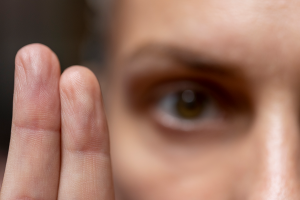Last updated: December 21, 2025
Grief is a natural response to losing someone or something deeply important to you. It often brings emotions like sadness, anger, and confusion — but for many people, it also includes anxiety and, at times, even panic attacks. If you’re grieving and have noticed increased worry, fear, or even sudden episodes of intense panic, you’re not alone. These reactions are more common than many realize, and they are a valid part of the grieving process.
Key Takeaways
- Grief can trigger anxiety and even panic attacks, especially after sudden, traumatic, or unexpected losses.
- Physical and emotional symptoms of grief-related anxiety include racing thoughts, restlessness, sleep disturbances, and feelings of helplessness.
- Coping strategies like grounding exercises, talking with trusted individuals, giving yourself time, and seeking professional support can help manage anxiety during grief.
Can Grief Cause Anxiety?
Yes, grief can absolutely cause anxiety. The emotional pain of loss can trigger uncertainty about the future, fears about safety, and overwhelming feelings of vulnerability.These symptoms may be especially intense if the loss was sudden, traumatic, or unexpected. It’s not unusual for someone in grief to experience racing thoughts or excessive worry, or physical symptoms like restlessness, stomach discomfort, or rapid heartbeat. They might also have trouble sleeping or concentrating – maybe a sense of being on edge or easily startled.
Grief disrupts our sense of normalcy and safety. Here are a few reasons why anxiety might increase after a loss:
- Fear of more loss: After someone dies or a major life change occurs, it can feel like the world is less predictable or secure.
- Feeling out of control: Grief often brings a sense of helplessness, which can contribute to anxiety.
- Change in roles or routines: When a loved one is gone, daily life changes — and adjusting can be overwhelming.
- Previous mental health challenges: If you’ve had anxiety before, grief can intensify those symptoms.
Can Grief Cause Panic Attacks?
Yes, in some cases, grief can lead to panic attacks — sudden and intense episodes of fear that come with physical symptoms like:
- Pounding heart
- Shortness of breath
- Chest pain
- Dizziness or nausea
- Feeling detached or unreal
- A fear of losing control or dying
Panic attacks can feel terrifying, especially if you don’t expect them. They may be triggered by a reminder of the loss, a stressful moment, or even come out of nowhere.
How to Cope With Anxiety and Panic During Grief
If you’re experiencing anxiety or panic as part of your grieving process, here are some ways to support yourself:
- Acknowledge What You’re Feeling: Grief doesn’t look the same for everyone. Feeling anxious or having panic attacks doesn’t mean you’re grieving “wrong” — it means your body and mind are reacting to loss in their own way.
- Practice Grounding Techniques: When anxiety rises, try breathing exercises, mindfulness, or grounding techniques. Simple things like naming five things you can see, hear, and feel can help you stay present and calm.
- Talk to Someone You Trust: Sharing your feelings with a friend, family member, or counselor can help you feel less alone. Sometimes just having someone listen can ease anxiety.
- Give Yourself Time: Anxiety related to grief often lessens over time, especially as you adjust to the loss. Be patient with yourself and allow space to heal.
- Seek Professional Support: If anxiety or panic attacks are interfering with your daily life, consider speaking with a therapist — especially one trained in grief and loss. Grief therapy can provide tools to manage symptoms and support you through the healing process.
Grief can be overwhelming, and anxiety is one of the many ways it can show up. If you’re experiencing panic or fear in the midst of loss, it doesn’t mean you’re weak — it means you’re human. With time, support, and care, both your heart and your mind can begin to find peace again. You don’t have to go through this alone.







